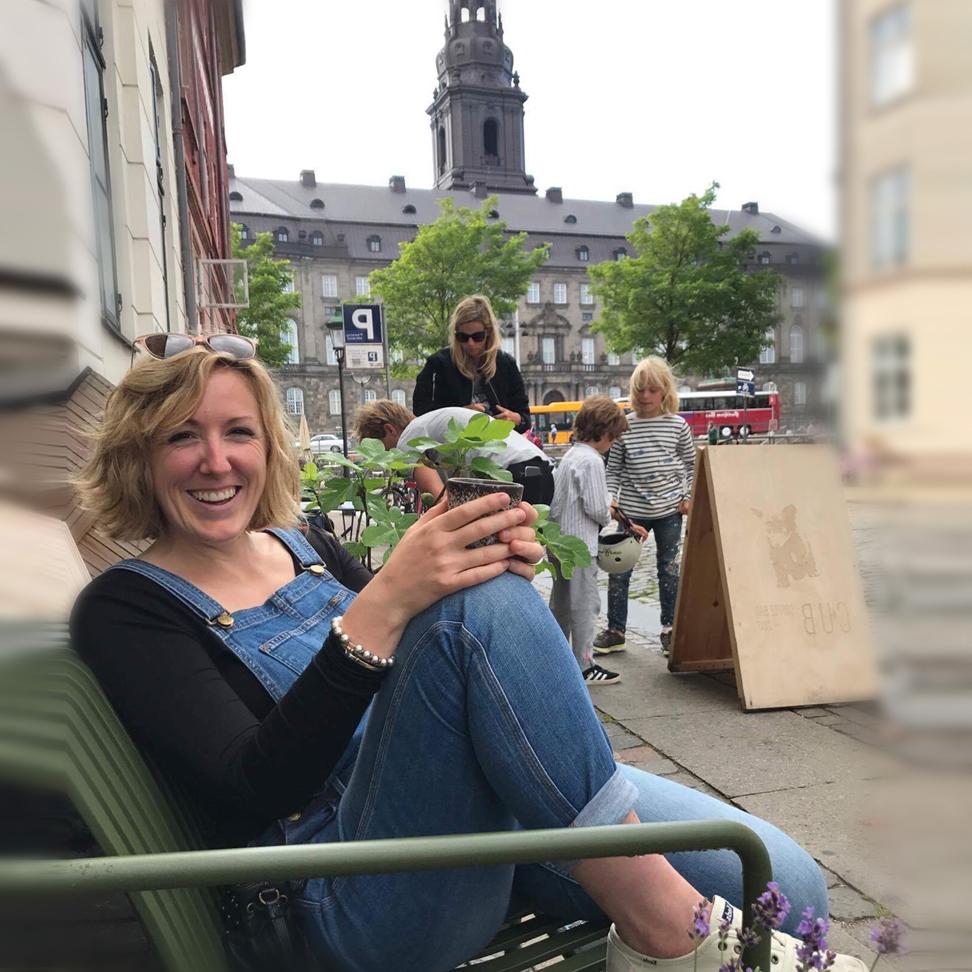Leaving far behind her motherland Finland, Sissi Korhonen has set off to cycle from South America to Central America. The road starts in 2015 in Ushuaia, Argentina and leads to Mexico, but with Sissi, the journey changes daily based on the spontaneous encounters she makes. Before rolling off on her next 1200 kilometers, she shared anecdotes of her adventures, touching upon issues like safety, perception, fear and communication, and what it’s really like to be a lone woman travelling through strange lands.
Read more about her travels on her page, Strangerless. Hopefully, she can inspire you to reach out and meet people at home and abroad because, as she believes, “a stranger is a just a friend you haven’t met yet.”
Why was it important for you to be a solo traveller?
First day of cycling, just Sissi and the view over Tierra del Fuego, Argentina
If there’s one thing I enjoy more than anything when travelling, it’s observing people. When travelling alone, you meet a lot of people and you’re free to do this at your own pace, with the people you feel naturally drawn to or intrigued by. There’s no one there to determine the rhythm or the topic of discussions for you, and not a soul will interfere with the beautiful, harmonious silences you may experience with a new person (or alone).
As a language fanatic, one of the most important aspects of being alone is definitely the opportunity of continuous exposure to a foreign language. You don’t have to speak to anyone, but you can earn the right to by learning the language. You’re also welcome to dwell in your own thoughts for as long as you need to. When alone, you can stay still for as long as you consider necessary, and move on when the time is right. You’re entirely free to make spontaneous decisions based solely on yourself and the incredible strangers you encounter!
Do you feel strangers treat you differently because you are a solo female traveller?
Sissi, preparing for another day of unexpected encounters on the road
I believe that a female stranger is a lot easier to approach than a male stranger – a woman is less threatening and somehow awakens much more trust in people than a man. On all my previous trips and especially on this one, I’ve often been told by a host that they wouldn’t have even considered inviting me to their house had I been a man. So, I feel in this aspect, being a woman definitely facilitates my travelling and interaction with people.
However, this is a double-edged sword. As a woman, the attention I get is not always positive. In Europe and the USA, I blend in nearly everywhere I go, yet in Africa, Asia and South America, I’m seen as something exotic. Therefore, it’s not often I can sit on a park bench without someone coming to talk to me, and in South America, it’s not uncommon for men to approach me and propose sex. Fortunately, it’s all just a lot of talk and no action.
How have women you’ve met on your travels perceived your choice to travel alone?
2015, somewhere in Patagonia, taking a break to enjoy the scenery
It’s always fun to meet local women when travelling because that’s when you really realize the differences in thought patterns and upbringing. I’ve basically grown up to think that my choices shouldn’t be dependent on a man, yet this is surely not the case of every woman in the world. Although a lot of women admire my courage to travel alone, in certain countries where a woman’s dream is traditionally to get married and have children, it’s not seldom for locals to treat me with pity.
At a wedding in Southern Brazil, I sat at a table with six (married) women. When I told them I was travelling alone, they all gazed at me with empathy in their eyes. One of them took my hand and said, “Don’t worry dear, your time will come.” It was quite hilarious to me – I might be 34, but I’ve never really worried about not having kids, a home or a man for the time being.
What are some great destinations that a solo traveller should definitely check out?
Soy fields and red dirt roads in Canindeyú, Paraguay
This depends a lot on what you’re after: peace and quiet, parties or people. Personally, I love interacting with local people and am convinced this is something you can do anywhere in the world. Yet, in order to meet people, I’d think about how you travel rather than where you travel to. A meaningful encounter can already take place on the plane if you approach people with a curious and open mind.
South America is generally great for solo travellers, as people here are incredibly hospitable. There are many small villages which are not saturated with tourists, and therefore locals are curious towards foreign travellers.
What are indispensable things for travelling solo?
Essentials in Sissi’s bike bag. Notice the momondo notebook?
The things that keep me from feeling lonely are a notebook, lots of pens, a laptop and a camera. I love sharing my trip with others through my blog and I love to draw and write when on my own.
I wouldn’t want to travel without my phone anymore. It also serves as a great tool for easy navigation and safety – people can track you down with location services and you can inform whoever you want about where you are, what you’re doing and with whom (something I strongly recommend when hitchhiking or staying with total strangers).
As for self-defense, I carry a fist-size pepper spray can with me. This is illegal in many countries, so be sure to check country policies before going through airport security. However, as I refuse to consider it a weapon, I’ll make my own DIY pepper spray in the unlikely event that someone one day takes away the one I have.
As a helpful tip: it’s a good idea not to tell everyone you’re travelling solo. Be cautious about whom you trust and don’t be afraid of telling white lies for your own safety.
How do you bring meaning to your travels?
Visiting the colourful neighbourhood of La Boca in Buenos Aires, Argentina
First and foremost, I want to learn something from my travels. In Latin America, I aim to learn Spanish and learn as much as I can about local cultures and thought patterns. I also want to practice more paragliding, diving, climbing…
Secondly, I want to share what I learn with others, both with locals as well as people in other countries. This is why I stay with locals and why I now have a blog. I don’t want to teach, but rather share my experiences and let everyone make their own interpretations based on what I’ve seen, heard and felt.
“A stranger is just a friend that you haven’t met yet”. Why do you believe this, and what is your approach to making new friends while travelling?
The Gonzalez family in San Miguel de Tucumán, Argentina, some of the many generous people met on the road
I’ve been hitchhiking for 16 years and cycling for over a year now. I love speaking to and staying with locals, and I’m constantly amazed by how friendly and wonderful strangers can be. All you need is to be open towards others, without ignoring your gut feeling. If someone seems sketchy, just leave them be.
Mass media makes people seem scary, but individuals are nearly always good and have incredible stories to tell. You might find that even a stranger from a completely different culture can have stories and thoughts very similar to your own, or that you can relate to – the key to everything is just asking questions and listening to what the other person has to say!
Of your many spontaneous encounters, whom is your most memorable?
A man named José in the Province of Buenos Aires. He was a worker at a farm where I stayed for a night. I showed up at the farm dead tired after cycling for a full day, and as the owner of the farm was not present, José and his wife invited me to have dinner and stay with them at their cottage instead. Although obviously poor, José made a feast for me, whilst his eight children took me on horseback rides around the premises. That night I slept in the same room with five of José’s children.
Before setting off the next morning, I drank maté (typical herbal drink in Argentina) with José as we talked for a couple of hours. He was the first person who shed light on how strangers might perceive me jumping into their realities. Until then, I had considered myself a nuisance, asking people for help. But José said, “Our days are monotonous. We get up at 5 am, work the fields, eat, work, eat, sleep siesta, work, eat and sleep. Every day. Your visit is a breath of fresh air to us. Please stay for as long as you like.”
How have you spread the word about “intercultural awareness”?
Curious children at a kindergarten in Campo Largo in the Chaco province, Argentina
For me, the best way to spread intercultural awareness is through my own example and my experiences with people. I don’t want to preach to anyone about intercultural awareness per se, but rather discuss with people about how things are done in their country and differently in my country. I consider intercultural awareness to be an attitude more than anything – a way of seeing the world – that anyone (even people who have never travelled) can apply in their encounters with strangers.
It’s comparable to cultural universalism and relativism. The first part is understanding that cultural differences exist and cause people to think and act differently, and the second part is the ability not to judge those differences, but rather just observe them and behave in such a manner which won’t insult your hosts, without compromising too much on your own values.
The internet is an amazing tool and platform for intercultural awareness, education and equality. I’ve slowly started teaching people in rural areas here in South America, how and for what to use the internet. My aim is to turn this into a course on internet based media literacy, which I can offer in schools throughout my whole journey until Mexico.
Where are you off to next?
Contemplating the horizon in the Rio Grande do Sul province in Southern Brazil
In two days, I’ll be leaving for the carnival of Tilcara, Jujuy, Argentina, which is one of the most traditional and well-preserved carnivals around. From there, I’ll cycle to Bolivia, Peru, Ecuador, Colombia and then all the way through Central America to Mexico. I’ve been in Paraguay for months now because of launching an online travel magazine for Finnish females and other writing tasks.
I already dream about exploring the indigenous cultures of Bolivia, meeting my friend’s family in Ecuador, dancing salsa in Cali, Colombia, trading work for freediving in Peru, learning to cook authentic Mexican food and many other things.
What question do you get asked most often by strangers?
“Aren’t you afraid?” That’s no doubt the most common one. And the answer is: yes, I am. But, I try my very best to not let fear get in the way of me doing the things I want to do.
What question would you like to ask our next Travellers We Love?
Does learning languages expand our way of thinking, or can two people understand each other without a common language?


